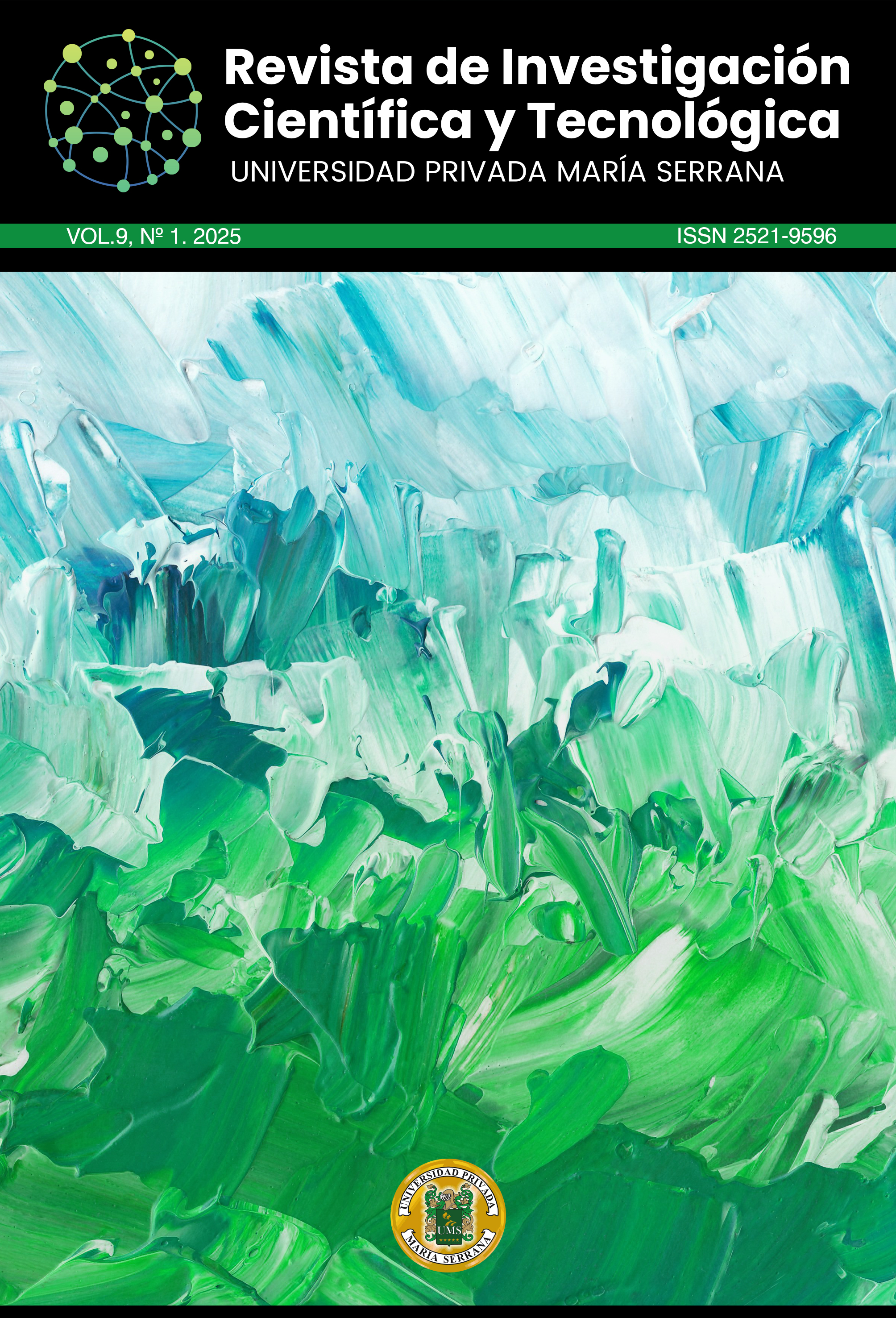Resumen
Introducción: Los bajos niveles de comprensión en Colombia, especialmente en áreas rurales, perpetúan las desigualdades educativas y limita el desarrollo comunitario. En la Institución Educativa Rural Cristo Rey Antonio Nariño, ubicada en San Vicente del Caguán, estudiantes de 4° y 5° grado presentan dificultades en este aspecto, lo que afecta su rendimiento académico y su participación social. Por lo tanto, la presente investigación buscó fortalecer la comprensión lectora de los estudiantes a través del uso de textos instructivos. Método: Esta investigación, de enfoque cualitativo y fundamentada en el paradigma socio - crítico, se desarrolló bajo el marco de la Investigación Acción Participativa (IAP). El estudio se llevó a cabo en cuatro fases: Diagnóstico de la comprensión lectora de los estudiantes, diseño de materiales e implementación de textos instructivos, y evaluación de los niveles de comprensión lectora (literal, inferencial y crítico intertextual) a través de observación directa, encuestas y lista de cotejo. Resultados: El diagnóstico inicial mostró serias dificultades en comprensión lectora, baja práctica de lectura fuera del aula y escasez de recursos en casa. Tras implementar textos instructivos, los estudiantes mostraron mejoras en todos los niveles: en el literal, identificaron y organizaron información; en el inferencial, interpretaron y dedujeron datos implícitos; y en el crítico-intertextual, integraron sus experiencias y desarrollaron pensamiento analítico. Conclusión: Los textos instructivos demostraron ser efectivos para mejorar la comprensión lectora y fomentar habilidades críticas y creativas, promoviendo así el desarrollo comunitario al conectar la educación con la vida cotidiana en áreas rurales.
Referencias
Adams, R., & Farnsworth, M. (2020). Culturally Responsive Teacher Education for Rural and Native Communities. Multicultural Perspectives, 22(2), 84-90. https://doi.org/10.1080/15210960.2020.1741367
Adamson, R. M., & Wachsmuth, S. T. (2014). A Review of Direct Observation Research within the past Decade in the Field of Emotional and Behavioral Disorders. Behavioral Disorders, 39(4), 181-189. https://doi.org/10.1177/019874291303900403
Barzilai, S., Zohar, A. R., & Mor-Hagani, S. (2018). Promoting Integration of Multiple Texts: a Review of Instructional Approaches and Practices Educational Psychology Review, 30(3), 973-999. https://doi.org/10.1007/s10648-018-9436-8
Beltrán Buelvas, L. P. (2023). Retos para la Enseñanza de la Lectura en el Contexto Rural de Colombia. Ciencia Latina Revista Científica Multidisciplinar, 7(5),4893-4915. https:/doi.org/10.37811/cl_rcm.v7i5.8084
Corzo, J. Q., & Lopera, C. J. L. (2016). Content Based Lesson Plans inside the English Rural Classrooms. International Education Studies, 9(11), 130. https://doi.org/10.5539/ies.v9n11p130
De La Rosa Ochoa, A. M. (2018). Comprensión lectora en la producción de textos instructivos en estudiantes de tercer grado de primaria, 2018 [Pregrado en Educación, Escuela de Posgrado Universidad César Vallejo]. https://hdl.handle.net/20.500.12692/21513
de-la-Peña, C., & Luque-Rojas, M. J. (2021). Levels of Reading Comprehension in Higher Education: Systematic Review and Meta-Analysis. Frontiers in Psychology, 12. https://doi.org/10.3389/fpsyg.2021.712901
Elleman, A. M. (2017). Examining the impact of inference instruction on the literal and inferential comprehension of skilled and less skilled readers: A meta-analytic review. Journal of Educational Psychology, 109(6), 761-781. https://doi.org/10.1037/edu0000180
Laboratorio de Economía de la Educación (LEE). (2023). Informe No. 79 Características y retos de la educación rural en Colombia. https://www.javeriana.edu.co/recursosdb/5581483/8102914/Informe-79-Educacio%CC%81n-rural-en-Colombia-%28F%29oct.pdf
Lenhard, W., Baier, H., Endlich, D., Schneider, W., & Hoffmann, J. (2013). Rethinking strategy instruction: direct reading strategy instruction versus computer-based guided practice. Journal of Research in Reading, 36(2), 223-240. https://doi.org/10.1111/j.1467-9817.2011.01505.x
McVicker, C. J. (2018). Visual Literacy And Learning To Read: Using Comic Strips for Reading Instruction. Journal of Visual Languages & Computing. https://www.researchgate.net/publication/327043053
Moreno-Castro, J. A., Ayala-Sáenz, R., Díaz-Pardo, J. C., & Vásquez-García, C. A. (2010). Prácticas lectoras: comprensión y evaluación. Tendencias, estado y proyecciones. Forma y Función, 23(1), 145-175.
Naciones Unidas. (1989). Convención sobre los Derechos del Niño. https://www.ohchr.org/es/instruments-mechanisms/instruments/convention-rights-child
Pearson, P. D., & Gallagher, M. C. (1983). The instruction of reading comprehension. Contemporary Educational Psychology, 8(3), 317-344. https://doi.org/10.1016/0361-476X(83)90019-X
Piratoba Ortega, N. O. (2024). La Comprensión Lectora en Educación Básica Primaria: Un Desafío en los Contextos Académicos Rurales. Dialéctica, 2(22), 77-92 https://doi.org/10.56219/dialct.v2i22.2689
Remacha Irure, A., & Belletich Ruiz, O. (2014). El método de ABP en contextos educativos rurales y socialmente desfavorecidos de la Educación Infantil. Perspectiva Educacional, 54(1), 75-89. https://doi.org/10.4151/07189729-Vol.54-Iss.1-Art.294
Lugo Plasencia, J. G. (2020). Estrategias didácticas en el proceso educativo de la zona rural. Conrado, 16(72), 242-247. http://scielo.sld.cu/scielo.php?script=sci_arttext&pid=S1990-86442020000100242&lng=es&nrm=iso&tlng=es
Rodríguez Mateus, A. L. (2022). La práctica pedagógica Desde Los Contextos Rurales, Y La problemática De La comprensión Lectora. Rastros Y Rostros Del Saber, 7(12), 21-34. https://revistas.uptc.edu.co/index.php/rastrosyrostros/article/view/15354?utm_source=chatgpt.com
Schneider, B. (2012). Participatory Action Research, Mental Health Service User Research, and the Hearing (our) Voices Projects. International Journal of Qualitative Methods, 11(2), 152-165. https://doi.org/10.1177/160940691201100203
Sellars, J. (2017, December 5). Comics in the classroom. Building reading comprehension and literary analysis with help from the X-Men. Harvard Graduate School of Education. https://www.gse.harvard.edu/ideas/usable-knowledge/17/12/comics-classroom
Sinche Crispin, F. V., Infante Rivera, L. de J., Espinoza Quispe, C. E., Matos Vila, G. S., & Gilvonio Yaranga, F. M. (2023). Implicancia de la fenomenología social y el paradigma socio-crítico en la investigación de la educación universitaria. E-Revista Multidisciplinaria Del Saber, 1-9. https://doi.org/10.61286/e-rms.vli.5
Smit, R., & Humpert, W. (2012). Differentiated instruction in small schools. Teaching and Teacher Education, 28(8), 1152-1162. https://doi.org/10.1016/j.tate.2012.07.003
Vong, S. (2017). A Constructivist Approach for Introducing Undergraduate Students to Special Collections and Archival Research. RBM: A Journal of Rare Books, Manuscripts, and Cultural Heritage, 17(2). https://doi.org/10.5860/rbm.17.2.9666
Wijekumar, K. (Kay), Meyer, B. J. F., & Lei, P. (2017). Web-based text structure strategy instruction improves seventh graders' content area reading comprehension. Journal of Educational Psychology, 109(6), 741-760. https://doi.org/10.1037/edu0000168
Williams, J. P. (2005). Instruction in Reading Comprehension for Primary-Grade Students. The Journal of Special Education, 39(1), 6–18. https://doi.org/10.1177/00224669050390010201
World Medical Association. (2013). World Medical Association declaration of Helsinki: Ethical principles for medical research involving human subjects. In JAMA (Vol. 310, Issue 20, pp. 2191-2194). American Medical Association. https://doi.org/10.1001/jama.2013.281053

Esta obra está bajo una licencia internacional Creative Commons Atribución 4.0.






